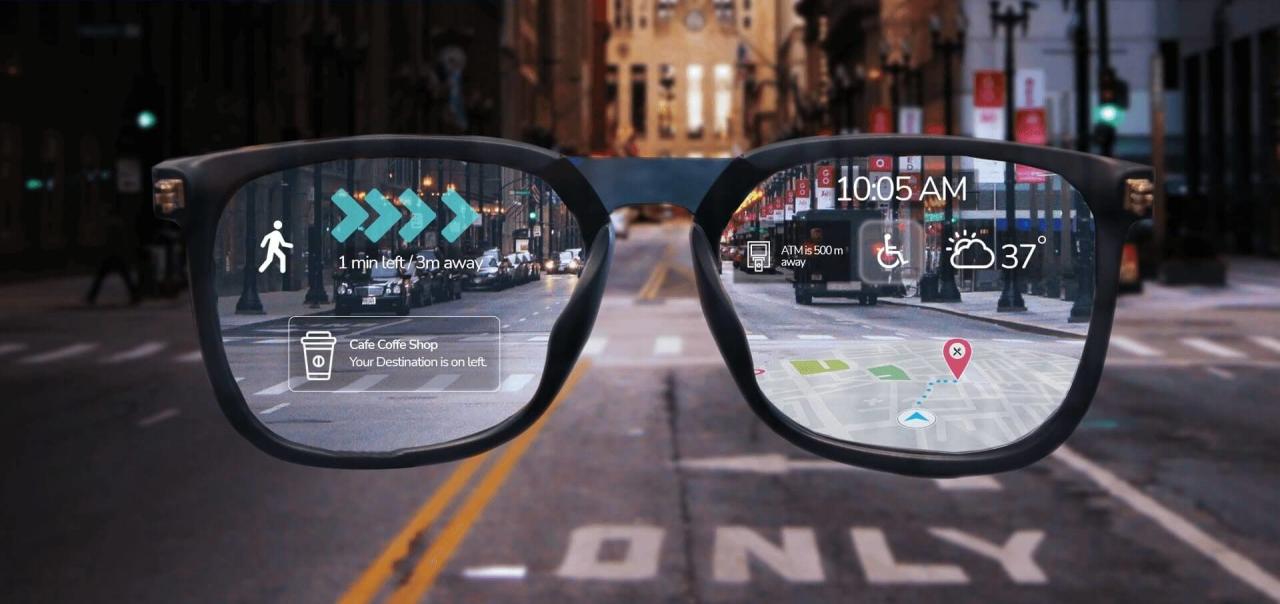Augmented Reality (AR) glasses are set to transform how we interact with technology, blending digital content seamlessly with the physical world. By 2025, advancements in display technology, AI integration, and wearable design will make AR glasses more practical and powerful than ever. This in-depth guide explores the future of AR glasses, highlighting key innovations, top models, and their potential impact across industries.
Why AR Glasses Will Dominate in 2025
AR glasses are evolving beyond niche gadgets into essential tools for work, entertainment, and daily life. Here’s why 2025 will be a breakthrough year:
-
Lightweight, Stylish Designs – No longer bulky, new models resemble regular eyewear.
-
AI-Powered Visual Assistance – Real-time translation, object recognition, and navigation.
-
Seamless Smartphone Integration – Pairing with iOS and Android for unified ecosystems.
-
Enterprise & Consumer Adoption – Used in healthcare, manufacturing, and gaming.
-
5G & Edge Computing – Faster processing with low-latency cloud support.
With tech giants like Apple, Meta, and Google investing heavily, AR glasses are poised to replace smartphones as the primary digital interface.
Top 5 AR Glasses to Watch in 2025
A. Apple Vision Pro 2 – Best for Consumers
Key Features:
-
Micro-OLED 8K displays (per-eye resolution)
-
M3 Ultra chip for desktop-level performance
-
LiDAR depth sensing & eye tracking
-
App Store with AR-optimized apps
-
Seamless Handoff with iPhone/Mac
Pros:
✔ Best display quality & color accuracy
✔ Largest AR app ecosystem
✔ Intuitive gesture & voice controls
Cons:
✖ High price ($3,000+)
✖ Limited battery life (4-6 hours)
B. Meta Ray-Ban 3 – Best Everyday Wear
Key Features:
-
Partnership with Ray-Ban (stylish frames)
-
12MP cameras with live streaming
-
Meta AI assistant with multimodal input
-
Open-ear audio & noise cancellation
-
Social media integration
Pros:
✔ Most discreet & fashionable design
✔ Great for calls, photos, and social sharing
✔ Affordable ($299 starting price)
Cons:
✖ Limited AR overlay capabilities
✖ Requires smartphone connection
C. Microsoft HoloLens 3 – Best for Enterprise
Key Features:
-
Snapdragon XR3+ Gen 2 processor
-
Holographic 3D workspace integration
-
Hands-free CAD visualization
-
Windows Copilot AI assistance
-
Industrial-grade durability
Pros:
✔ Best for engineering & medical training
✔ Full Windows app compatibility
✔ Advanced spatial mapping
Cons:
✖ Bulky compared to consumer models
✖ Expensive ($4,500+)
D. Google Project Iris – Best for Android Users
Key Features:
-
Tensor G4-powered AI enhancements
-
Real-time Google Lens integration
-
Maps AR navigation with live traffic
-
Google Workspace productivity tools
-
Assistant with contextual awareness
Pros:
✔ Deep Android/ChromeOS integration
✔ Best for Google ecosystem users
✔ Likely affordable pricing
Cons:
✖ Untested in consumer market (new product)
✖ Potential privacy concerns
E. Snap Spectacles 4 – Best for Creators
Key Features:
-
Dual 4K cameras for AR content creation
-
Snapchat Lens Studio integration
-
Haptic feedback for interactions
-
Multi-user AR experiences
-
Lightweight plastic frames
Pros:
✔ Best for social media creators
✔ Fun, playful AR filters & effects
✔ Affordable ($399 estimated)
Cons:
✖ Limited productivity use cases
✖ Battery drains quickly with camera use
How AR Glasses Work: 2025 Technology Breakdown

A. Display Systems
-
Waveguide Optics – Lightweight lenses project images onto the retina.
-
Micro-LED vs. Micro-OLED – Brighter colors vs. deeper blacks.
-
Varifocal Displays – Adjusts focus dynamically to reduce eye strain.
B. Tracking & Sensors
-
Inside-Out Tracking – Cameras map surroundings without external beacons.
-
Eye & Hand Tracking – Enables gaze-based selection and gestures.
-
LiDAR/ToF Sensors – Measures depth for accurate object placement.
C. Processing & Connectivity
-
On-Device AI Chips – Faster response times for real-time AR.
-
5G & Wi-Fi 7 – Cloud rendering for complex applications.
-
Edge Computing – Reduces latency for multiplayer AR experiences.
Industries Transformed by AR Glasses
A. Healthcare
-
Surgical navigation with real-time patient data overlay
-
Medical training via 3D anatomy visualization
-
Remote specialist assistance
B. Manufacturing & Engineering
-
Interactive repair manuals
-
Quality control with defect detection
-
Collaborative 3D prototyping
C. Retail & E-Commerce
-
Virtual try-ons for clothes/accessories
-
In-store AR navigation & promotions
-
Live product customization
D. Education & Training
-
Immersive historical reconstructions
-
Language learning with real-time translation
-
Hands-on STEM experiments
E. Gaming & Entertainment
-
Persistent AR worlds (Pokémon GO++)
-
Interactive movie experiences
-
Live sports stats & replay angles
Challenges Holding Back Mass Adoption
-
Battery Life – Most last <6 hours; needs solid-state breakthroughs.
-
Social Acceptance – “Glasshole” stigma still lingers.
-
Privacy Concerns – Always-on cameras raise surveillance questions.
-
Content Ecosystem – Still lacks “killer apps” beyond novelty.
-
Cost Barriers – Premium models remain prohibitively expensive.
Future Predictions (2026 & Beyond)
-
Neural Interface Integration – Brainwave control prototypes
-
Holographic Displays – Glasses-free 3D projections
-
Self-Charging via Solar/Skin Friction
-
Prescription Lens Partnerships – Mainstream adoption
-
AR Contact Lenses – Early experiments by Mojo Vision
Final Verdict: Who Should Buy AR Glasses in 2025?

-
Tech Enthusiasts → Apple Vision Pro 2
-
Professionals → Microsoft HoloLens 3
-
Social Users → Meta Ray-Ban 3
-
Android Fans → Google Project Iris
-
Creators → Snap Spectacles 4












